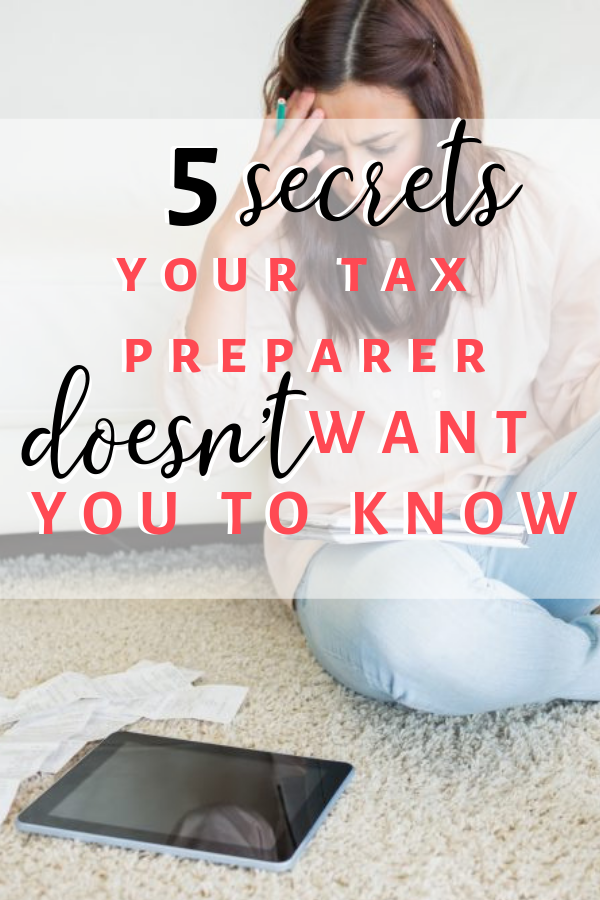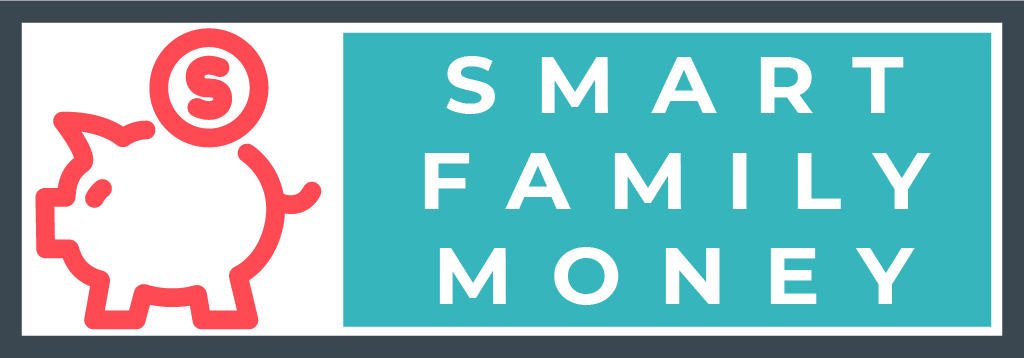DISCLOSURE: This post may contain affiliate links, meaning when you click the links and make a purchase, we receive a commission. Also an Amazon Associate, I earn from qualifying purchases. DISCLAIMER: The information and opinions within this content are for information purposes only. Guidance is based on personal interpretations and in no way, represents legal or financial advice. For more information, read my disclosure policy.
Have you ever gone to a tax preparer? Have you wondered if it’s worth the money? Have you wondered if they know what they’re doing?
Last year, I worked as an income tax preparer for a large retail tax preparation chain. During my experience, I learned plenty of things that tax preparers don’t want their customers to know.

1. Not All Tax Professionals Are Equal
Do you know what is required to prepare income tax returns for pay in the United States? You must apply with the IRS for a PTIN (preparer tax identification number) and pay a fee. Does that certify that you’re qualified?
Nope! It just identifies you as a paid preparer and certifies that you haven’t been arrested for tax fraud. Anyone can apply for a PTIN and call themselves a professional tax preparer. ANYONE.
Good Tax Professionals & Bad Tax Professionals
In my retail office, there were tax professionals who had nothing but an 8-week training course and there were professionals who had 20 years of experience.
There were also varying degrees of skill, which did not necessarily correlate to the years of experience. Regardless of experience or skill, they all cost the same. The prices are based on how complex the return is, not on the experience or skill of the professional.
If you walked in without an appointment, odds were very high that you’d get assigned to the inexperienced newbie. Why? The experienced professionals were already booked solid with clients! The newbies had plenty of free time.

How Do You Find a Good Tax Professional?
The only way is to ask friends and co-workers for recommendations. If you have a uniquely complex tax situation, only go to someone who you know has experience in that area of taxes.
This would especially apply to special situations like:
- Tax returns with many states or localities
- On-the-road truck drivers
- Clergy members
- Farms
- Complex businesses
- K-1 Partnerships
Is a CPA the Best Tax Professional?
CPA’s are trained in accounting. Accounting and taxes are two very different things. Actually, taxes are much more about interpreting the law than about accounting.
CPA’s don’t get much training in taxes through their schooling. Does that mean that all CPA’s are terrible tax preparers? No, of course not! It just means that the CPA behind someone’s name does not guarantee that they’re the best person to help with your taxes.
2. A Tax Preparer Is Only As Good As the Information You Give Them
Tax preparers expect you to bring them your paperwork, neatly organized. They then take that paperwork and enter it into their software and the software calculates your taxes. They may also ask you some additional questions to make sure you haven’t missed anything important.
If you can answer the preparer’s questions, then you can probably answer the same questions with software. The value in a real-life preparer comes in when you don’t understand the questions or need help figuring out the answer to those questions.
Except in the special situations listed above, the questions and the answers are pretty simple! You’ve probably already done all the hard work of gathering your papers and adding up your receipts. The preparer is just doing the easy work of plugging that information into the software. Which brings me to my next point…

3. DIY Income Tax Software Is Really Good
Software like TurboTax and H&R Block Online is excellent. It guides you through all the questions that need to be asked, just like a real-life professional does, but for about 10% of the cost (or free). I’d be willing to bet the software overall is more accurate than professionals in many situations. There is just less room for human error.
At the retail tax preparation store I worked in, we offered free reviews of tax returns. If someone had already prepared their taxes with another company or software, we’d look it over and see if we agreed.
This required completely preparing the return from start to finish (often 1+ hours of work). If the tax return was prepared with DIY software, the tax pros never wanted to do the review and would argue over who had to do it. Why? Because the software was almost always right!
The only times we would find a difference is if the person forgot to input something like college tuition or daycare costs.
Maybe they didn’t realize that the parent could claim the college tuition paid for their child. If they had paid attention to what the software asked, they would have known that already, though.
We rarely found any differences, though, because the tax software is very good!
4. Free Help is Easy to Find
If you do have questions about your tax return, you don’t need to pay hundreds of dollars to a tax professional to get answers.
Free (or cheap) help is available very easily. One of the best resources is the IRS website. They have very easy-to-read guides about any tax topic.
If you’re using software, it probably already comes with free tax advice from professionals, either through chat or phone. Use it if you need it!
The point of a tax professional is to help clarify the laws for you and find the most deductions for your situation. You might need a little help understanding the rules, but I can guarantee that you’ll find the best answers for yourself and put the most time into it.
You are much more committed to finding that extra $100 deduction than your tax professional is. They have a ton of clients and the faster they do the returns, the more money they make.
If You Really Need a Tax Preparer, You Can Get One For Free
If you really need an in-person tax preparer, you can use a volunteer tax preparer. Families that make less than $54,000 qualify to use a VITA (Volunteer Income Tax Assistance) tax preparer.
Everyone else (regardless of age, income, or tax complexity) is eligible to use AARP tax preparers. You can find these services through the IRS.
In case you’re wondering if these tax preparers are well-trained, let me assure you that they generally are. One of my most experienced tax professional co-workers moonlighted a few days a week as a VITA tax volunteer. She was, of course, forbidden from telling her paid clients that.
One of the best sources of help overall is the people at the IRS, which leads me to the most important secret that tax preparers don’t want you to know…
5. The IRS Is Not Scary!
Really, they’re not! Besides their website, they also offer phone assistance and local in-person assistance by appointment. You will find that the IRS employees are generally personable and helpful.
If you want to follow the law and file your taxes properly, they are happy to help! With that said, every answer you get from an IRS employee may not be accurate. Just like tax preparers, their experience and skill varies greatly.
It’s always best to verify with multiple sources if you have a particularly tricky situation. Inaccuracies aside, the IRS should only be scary if you’re trying to break the law in some way.
I really think that fear of the IRS is what keeps most tax preparation companies in business. I am here to tell you that there is nothing to be afraid of!
What About Audits? Aren’t They Scary?
Nope! First of all, the IRS rarely does traditional in-person audits anymore. They used to do quite a few of them (1980s and earlier) but it’s rare today. They’ve cut their staff significantly over the years because computers do most of the work now.
If the IRS computers can see that the numbers on your tax return match the numbers sent in (from your employer, bank, retirement company, or investment firm), then why would they audit you?
Don’t believe me that audits are extremely rare? Ask your friends and family. Who do you know that has been audited by the IRS in the last 20 years? If you don’t know anyone that it has happened to, then why are you paying for extra services for something that is so rare?
Statistics show that if you have income under 200,000 with no business activities, your odds of an audit are around 0.4%. That’s crazy low.
The most common thing that happens these days with the IRS is a letter to verify something. Especially in the case of high-value tax credits (like Earned Income Credits or adoption credits), they may ask for more information to back up what you’ve stated on your return.
As long as you weren’t lying and you have your paperwork, this should not be a big deal! If you have questions about the letter, you can call your friendly IRS representative. Really, that’s it. Calling the IRS should not be any scarier than calling the electric company to ask a question about your bill.

Bottom Line
I hope I helped you understand the tax preparation industry a little better. Working with clients was a lot of fun for me, but I felt like they spent WAY too much on my services. I much prefer offering free advice here instead!
Do you pay for tax preparation? Have you ever talked to the IRS? Comment below!

Darin Johnson
Wednesday 8th of March 2017
This article is the really important talking point, for taxing preparation, this stats is worth it to read and to follow. Business entrepreneurs must follow this significant stats. Great post, Cindy!
Cindy
Wednesday 8th of March 2017
Thanks, Darin!
Angelina
Friday 10th of February 2017
Ii'm very excited to follow you with hopes to achieve my goals for 2017!
Cindy
Saturday 11th of February 2017
I'm glad to have you here, Angelina!